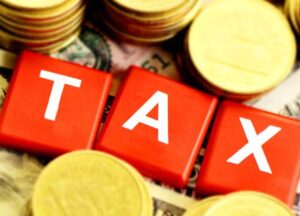The Push for Tax Reform in Nigeria – A Turning Point for Economic Growth?

The Push for Tax Reform in Nigeria: A Turning Point for Economic Growth?
Tax reform has taken center stage in Nigeria, sparking passionate debates across political and economic circles. As governors, lawmakers, and key stakeholders weigh in, it’s evident that the stakes are high. These reforms promise to reshape the country’s revenue structure, but the road to implementation is fraught with regional concerns, political tensions, and socio-economic implications. So, why is now considered the pivotal moment for tax reform?
At the heart of the conversation are four executive bills aimed at overhauling Nigeria’s tax system. These include the Nigeria Tax Bill, the Tax Administration Bill, and the Joint Revenue Board Establishment Bill. A major highlight is the proposal to replace the Federal Inland Revenue Service (FIRS) with the Nigeria Revenue Service. This shift aims to centralize and modernize tax collection processes, boosting efficiency while widening the tax base.
However, the legislation has drawn mixed reactions. While proponents see it as a catalyst for economic growth, skeptics question its implications for different regions, especially the northern states, where governors argue the reforms may harm their economies
The Northern States Governors Forum (NSGF) has been vocal in opposing certain aspects of the reforms. They argue that the proposed laws could disproportionately affect their regions, exacerbating economic disparities. Governors also stress the importance of equitable implementation to avoid marginalizing any geopolitical zone.
This regional pushback highlights an ongoing challenge: balancing national policies with the diverse economic realities of Nigeria’s regions. The presidency has attempted to allay fears, assuring stakeholders that the reforms won’t increase the number of taxes but will optimize existing systems
Lawmakers, particularly in the House of Representatives, have expressed strong support for the reforms, with minor modifications to ensure fairness. Deputy spokesman Philip Agbese emphasized that these reforms are seen as critical to revitalizing Nigeria’s economy. Despite threats from governors to deny lawmakers re-election support, many representatives remain steadfast, prioritizing the interests of their constituents over political pressures
If implemented, these reforms could significantly impact Nigeria’s fiscal health. Advocates believe they will attract foreign investment, enhance revenue collection, and reduce reliance on oil exports. By addressing loopholes and inefficiencies, the reforms aim to create a more sustainable and diversified economy.
However, critics caution against potential pitfalls. Poor implementation or perceived biases could lead to public backlash, undermining trust in government initiatives. Moreover, the transition period may pose challenges for businesses adjusting to new regulatory frameworks
The success of these reforms ultimately hinges on strong political will. President Tinubu has reiterated his commitment, refusing calls to withdraw the bills despite opposition from influential quarters. This determination reflects a broader shift in Nigeria’s political landscape, where progressive lawmakers aim to prioritize national interests over partisan loyalties.
The leadership of Speaker Tajudeen Abass has been instrumental in fostering a bipartisan approach to the reforms. As lawmakers debate and refine the bills, their ability to navigate complex political dynamics will be crucial
The proposed tax reforms represent both a challenge and an opportunity for Nigeria. As the nation grapples with economic uncertainties, these measures could mark a turning point, driving growth and sustainability. However, achieving this vision requires not only robust policies but also inclusive and transparent implementation.
Do you find Tmaq Media useful? Click here to give us five stars rating!




















